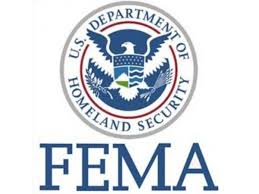Allstate offers advice to those impacted by recent floods
 HOUSTON, May 10, 2019 —Southeast Texas homeowners are busy trying to recover from flood damage caused by recent storms. While receding waters may signal the end of a flood, danger and devastation could continue for weeks. Caution and clear thinking in the wake of a flood can help save lives and prevent further property damage.
HOUSTON, May 10, 2019 —Southeast Texas homeowners are busy trying to recover from flood damage caused by recent storms. While receding waters may signal the end of a flood, danger and devastation could continue for weeks. Caution and clear thinking in the wake of a flood can help save lives and prevent further property damage.
Allstate encourages you to consider these six tips to ensure personal safety and avoid further damage to homes and property:
- Don’t walk through floodwater, particularly if it’s moving. Currents, even in small amounts of water, can be strong enough to carry you or your vehicle away.
- Drowning and electrocution are the leading causes of death from flooding. Stay away from power lines and electrical wires. Report downed wires to your local utility company or emergency officials.
- If you had to leave your home and did not turn off your electricity, do it as soon as you return. Do not use electronic devices or appliances that have been damaged by water.
- Be careful when walking anywhere flood waters have reached, including the floors in your home. Snakes and other small animals often take shelter in homes during floods. Debris such as nails, glass and sticks can make walking hazardous.
- Check for gas leaks. If you smell gas or hear a blowing or hissing sound, open a window and leave. Make sure the gas is turned off at the main valve outside. Only a professional should turn the gas back on when the danger has passed.
- Keep in mind that floodwater usually isn’t clean. Discard spoiled food, wet medicine and cosmetics, and anything else in question.
Allstate policyholders who have purchased NFIP policies can begin filing flood insurance claims by calling 1-800-54-STORM (800-547-8676) or logging on to Allstate’s claim reporting website or contacting their local Allstate agent.
Filing a flood claim for damage to your automobile? If you have comprehensive coverage on your auto insurance policy, you should call your auto insurer to start the claim process.
More information on the National Flood Insurance Program can be found on the Web at ww.fema.gov/nfip.

